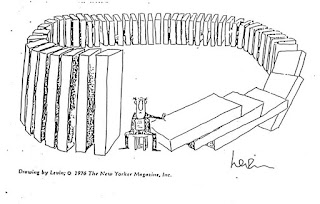Is Corona Pandemic a Boiling Frog Syndrome?
For too long humans have been struggling with poverty,
inequality, environmental degradation, conflicts and oppression of all kinds: race,
class, gender, religion – to name a few. Why, now all of a sudden, the whole
world is pouring attention on corona pandemic? What is the difference, then,
between the corona crisis and the other ones?
The answer is rather obvious – urgency. Which reminds me of the boiling frog syndrome:
If you put a frog in boiling water, it
quickly jumps out and saves itself. If you place the same frog in normal water
and slowly raise the temperature, the frog body will adjust to
the rising heat – it becomes numb and will remain there until it dies! The
difference is panic reaction vs gradual decay. Humanity’s other crises have
been evolving slowly, albeit steadily, over decades and centuries. Plus, they
have not threatened everyone equally – albeit, they have helped to create huge
chasms of the haves and have nots around the planet.
The current pandemic has exposed serious fault lines in humanity’s
consciousness and behavior towards its members. The poor of the world will
suffer most from climate change, pandemics, wars, etc. Even in the developed countries
the outcomes of corona treatments are disturbingly unequal. In the US, for example, the death rate among the
African Americans is alarmingly disproportionate to others. This exposure of historical shortcomings
presents an opportunity to mend them. Can we still ignore these global
challenges until they reach a crisis point? The choices we make now could chart
the future of our species and civilization.
Here are some hard questions: Could the corona crisis become
a catalyst for humanity to pay genuine attention to its other crises? Could it
change the human consciousness towards the recognition of the oneness and
solidarity of the human race?




The point about this post was humanity’s choices in dealing with crises. The frog metaphor is used to contrast between reacting to an immediate problem or danger vs inaction at the face of slow threats. This dichotomy and tendency are commonplace in human behavior too – the choice between easy and quick fix vs hard and slow – akin to procrastination. For example, when we are tired, depressed and overworked, it is easier to visit the ‘happy-hour’ at the bar rather than the gym – which requires greater effort and determination. Similar to shifting-the-burden archetype, the side effect is dependency on the quick fix!
ReplyDeleteToday, in addition to the corona pandemic, we are surrounded by predicaments of all sorts (some mentioned in the post). Yet, there does not seem to be a collective vision, will and plan to eradicate them. The urgency with which the world is dealing with COVID-19 is apt and must continue unabated. However, this also presents an historic opportunity for the world and us – as one human race – to progress to a new level of unity and cooperation to eradicate the historic global ills such as poverty, oppression, conflicts, etc. As systems thinkers, we know that this requires a fundamental mind shift –from a nationalist approach and self-interest to a global consciousness of the inherent oneness of humanity.
It is timely to remember that, our current mode of social organization has evolved over millennia – from early man and family, to community, to tribe, to the city state/politics and now nationhood. Each stage of this progression has been built upon the earlier one to match the needs of that time: survival, protection, trade, growth, etc.
Today, we live in a vastly different world, characterized by complexity, interconnections and most importantly interdependence. To counter the current and future threats to humanity, we will need a higher sense of unity, solidarity and cooperation, while maintaining our unique cultures, identity, and affinities.